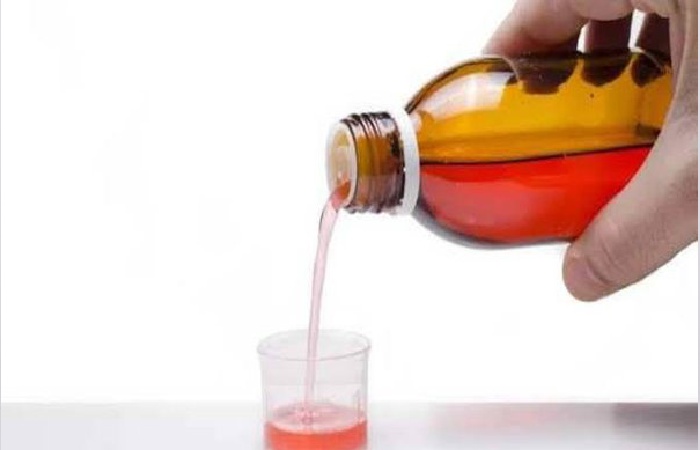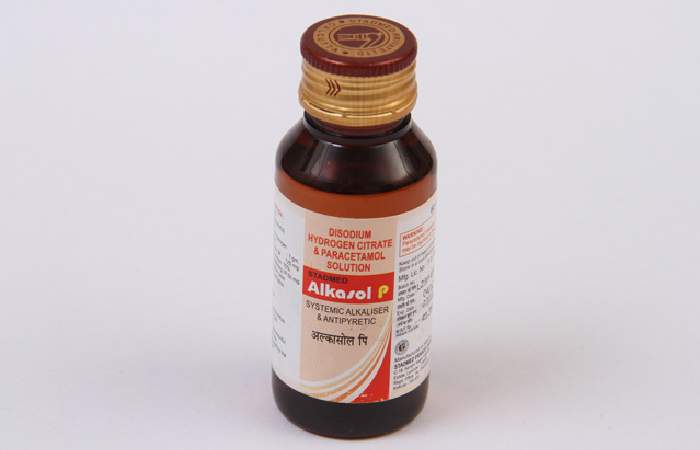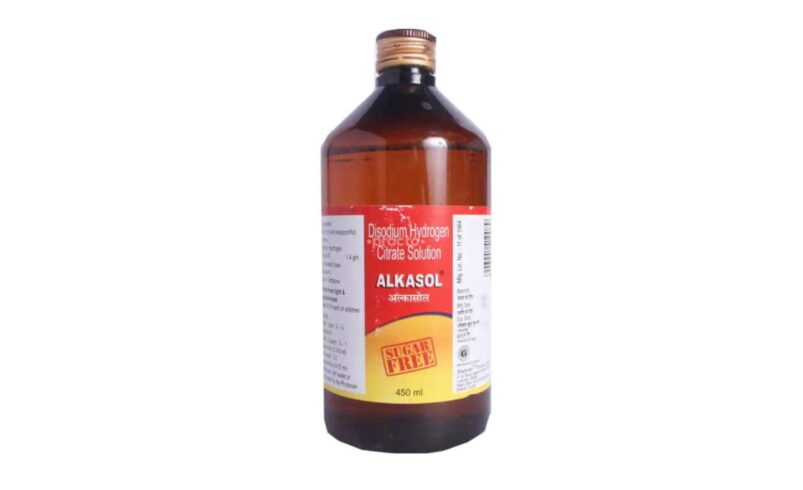Alkasol Syrup Uses For Urine Infection – Alkasol liquid
Hello everyone, today we are going to talk about Alkasol syrup’s use for urine infections. Alkasol syrup is used to treat urine infections, painful urination, kidney stones, gout, and urinary acidosis. Alkasol liquid is taken after a meal with plenty of water or as prescribed by your doctor.
Finding the proper medication can make a significant difference in maintaining overall urinary health. Alkasol Oral Solution Sugar-Free, a versatile medication, has garnered attention for its potential to address various urinary tract-related issues, including urine infections.
Overview Of Alkasol Syrup Uses For Urine Infection
| Price: | ₹125.8. |
| Consume Type: | Oral |
| Contains: | Disodium Hydrogen Citrate. |
| Manufactured By: | Stadmed Pvt Ltd. |
| Therapy: | Drugs for Renal Calculi. |
| Expires on or After: | Jan-25. |
| Uses: | Gout, kidney stones, urinary tract infection. |
| Side Effects: | Nausea, vomiting, diarrhea, stomach pain, weakness. |
Side Effects And Uses Of Alkasol Liquid
| Side Effects | Uses |
| Diarrhoea | Kidney stones |
| Nausea and vomiting | Urinary tract infection |
| Tiredness | Painful urination |
| Frequent urge to urinate | Gout |
| Unpleasant taste | |
| Stomach cramps | |
| Excessive air or gas in stomach | |
| Change in mood |
Safety Advice for Alkasol Syrup Uses For Urine Infection
Pregnancy and Breastfeeding:
One of the primary safety considerations with Alkasol Syrup is its use during pregnancy and breastfeeding. The available information on the safety of Alkasol Syrup in pregnant women is limited, and as a precautionary measure, it is generally recommended to avoid this medication during pregnancy.
Similarly, the use of Alkasol Syrup while breastfeeding is not advised, as it may potentially cause adverse effects on the nursing infant. If you are pregnant or breastfeeding, it is essential to consult with your healthcare provider before using Alkasol Syrup to ensure the safety of both you and your child.
Driving and Alcohol Consumption:
Another vital aspect to consider is the potential impact of Alkasol Syrup on your ability to operate a vehicle safely. If you experience any side effects, such as drowsiness or dizziness, after taking Alkasol Syrup, it is advisable to avoid driving until these symptoms have subsided.
Additionally, the concomitant use of Alkasol Syrup and alcohol can increase the risk of dehydration, and it is generally recommended to abstain from alcohol while taking this medication.
Pre-existing Medical Conditions:
If you have certain pre-existing medical conditions, informing your healthcare provider before starting Alkasol Syrup is crucial. This includes conditions such as diabetes, kidney disease, and chronic diarrheal disorders like ulcerative colitis or Crohn’s disease. Your doctor may need to adjust the dosage or closely monitor you to ensure the safe and effective use of Alkasol Syrup.
When not to use? 
| Allergy: | As with any other medication, one should not take Alkasol liquid if allergic to the product. Ensure that you inform your doctor if there is any known case of allergy to fexofenadine. If, for instance, you develop a skin rash or itching/swelling, dizziness or breathing difficulties, or any other related symptom, inform your doctor and rush for a medical checkup. |
| Hyperkalaemia: | Hyperkalaemia, on the other hand, refers to a clinical state in which potassium levels in the blood are raised. Potassium is essential for nerve and muscle tissue’s effective and proper functioning, including the cardiac muscle. If you have hyperkalemia, you should not use alcohol liquid, as it can cause severe side effects. |
| Severe Kidney Disease: | Nevertheless, Alkasol liquid is not authorized if the patient has severe kidney loss because it intensifies the problem. You should seek advice from your doctor before you administer this medicine. |
FAQ
Q: What are the usual instructions from a doctor on how to take Alkasol syrup?
A: To avoid stomach irritation, alkasol syrup should be swallowed with a glass of water or fruit juice at least 15 minutes after meals. To fully and effectively manage its benefits, the treatment should be taken as prescribed by the doctor. If you feel nausea, vomiting, or experience abdominal pain during the use of this particular medicine, it is advisable to consult your doctor.
Q: About using Alkasol, a question that might come to mind is whether it is safe for children to take it.
A: In particular, never give your child any medication unless the pediatrician recommends it.
Q: Is it safe for me to use Alkasol while I am pregnant?
A: The place of Alkasol syrup in pregnancy should not be recommended since data on its safety and performance in pregnant women is lacking.
Q: In its endeavor to answer whether Alkasol syrup dissolves kidney stones, this post has provided sufficient information whose yield is a definite positive.
A: Alkasol syrup is used to manage kidney stones, which result from the formation of urate. It does so by altering the pH of the urine to a less acidic level, which aids in breaking down the kidney stones.
Q: How many days should a patient take this Alkasol syrup before noticing an improvement in the problem?
A: Some factors that could affect the dose or duration include the severity of the condition and the rate of recovery after taking this medicine. Certain things can bring relief and make you believe everything has returned to normal, but it is important not to stop treatment by yourself; always consult your doctor.
Q: How soon will it take for me to start feeling the effects of Alkasol?
A: This will, of course, depend on the type of infection or disorder in your body. However, to achieve the best outcome in the treatment, as this medicine, it is recommended that you adhere to the doctor’s instructions.
Q: Does Alkasol contain diuretic?
A: Alkasol syrup is not a diuretic, and there’s no truth to the statement above.
Q: Finally, the study raises another question: Is Alkasol an ototoxic drug?
A: In other words, Alkasol syrup is not an ototoxic substance. A: Alkasol syrup does not fall under the antibiotic class of drugs since antibiotics are used to treat bacterial infections.


